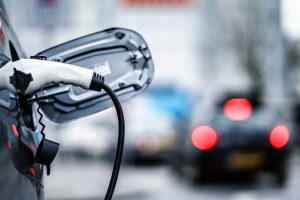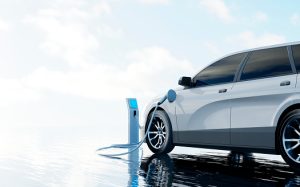Plug-in hybrid electric vehicles gained popularity due to their practicality and purportedly green reputation. However, a plug-in hybrid is typically less environmentally beneficial than an electric car (EV). Hybrids frequently perform worse than the gasoline-powered cars they were designed to replace.
There will be less of a need to purchase in the future, regardless of cost or convenience.
Using Fuel vs. Charging
The fact that hybrids often have a larger range than EVs is one of the main reasons people choose plug-in hybrids over EVs. While prospective purchasers want to lessen their carbon footprint, they also desire the ease of readily refueling their automobile while on the road.
Policies to phase out gas-powered cars over the next 10 to 20 years have been declared in the majority of affluent nations. The majority of these regulations are designed to make sure that after this time, only zero emission vehicles are offered. That indicates that the time period we are in right now is unusual. Although gas-powered cars are still the norm, it is obvious that their time has come to pass. Making a choice about what vehicle to purchase if you’re interested in one right now is difficult. Should you purchase the gas-powered vehicle you are accustomed to? Is it the right moment to buy an electric car? Or should you start out with a hybrid vehicle? I’m going to look more closely at hybrid automobiles in this piece because many people believe that they could be a useful transitional technology. We’ll find out if hybrid vehicles are more environmentally friendly.

It’s crucial to keep in mind that there are various hybrid car kinds as we examine these vehicles. We shall examine each one separately to adequately assess their viability.
The typical hybrid has a little battery that is charged when braking. The battery and combustion engine work together to lower the quantity of gasoline used. Although having access to conventional gas stations is a benefit, the battery is so small that most drives can’t be completed without the gas engine. Since you have to start and stop more often when driving in cities, they do prefer to charge a respectable amount.
The advantages of using this battery diminish as you drive at higher speeds. It is obvious that conventional hybrids will not help us achieve our environmental objectives and, depending on how and where you drive, may not even help you save much money on fuel.
Although they require charging, plug-in hybrid vehicles may make short trips solely on electricity.
The battery in this car is bigger than one in a typical hybrid. This indicates that the battery must be charged independently through a charging port (thus the term “plug-in”). Some of these vehicles only utilize electricity up until the battery runs out, at which point they switch to gas. Others employ a “blended mode,” in which both are employed simultaneously. The former can often travel between 20 and 50 miles (32 and 80 kilometers) on electricity before switching to gas. Due to the fact that you may recharge them when you arrive home, they are useful for frequent short drives. The carbon emissions in these situations are minimal.
They can be less desirable if you intend to use them for prolonged drives. This situation adds further complexity because you have to use conventional petrol stations in addition to charging the battery. Additionally, the car will normally have inferior fuel efficiency when using petrol because of the weight of the batteries. You will consume more gas than the average gas-powered car when the gas engine is used exclusively. Due to the additional components, which increase the potential for failure, they may also require more frequent maintenance.
Range-extended electric vehicles aren’t as common as they once were.
A range extended electric vehicle is essentially an electric vehicle with a small gas motor, unlike the other variants, which are often gas-powered cars with varying quantities of electric batteries included. When the car’s battery is low, this recharges it. The car’s range is somewhat increased as a result. The advantage of this is obvious because “range anxiety,” or the fear that the battery will run out, and they won’t be able to recharge it, is a major reason why people are hesitant to buy an all-electric car.
Another benefit is that most of the time you will be using electricity rather than gas. However, due to ongoing advancements in battery technology, these have fallen out of favor with both manufacturers and consumers. This indicates that as time goes on, a range extender will become less necessary. As a result, these vehicles are mostly unavailable, particularly in wealthy nations with dense populations.
Advantages of hybrids
After examining the various categories, let’s examine some of their overall advantages:
- Compared to conventional cars, hybrids typically have a better resale value.
- Reduce gas consumption—it’s for the environment.
- Depending on how the automobile is utilized, there is a chance to save money on gas.
Some detractors of hybrid and electric vehicles contend that there are no genuine advantages to using electricity over conventional gas because energy generation in the majority of nations is dependent on fossil fuels. That is not the situation. Although there is still work to be done to integrate renewable energy into our electrical networks, most nations have at least a small amount of renewable energy. Thus, the carbon emissions are decreased. An automobile running on electricity would still be more efficient even if there were no renewable energy sources present because it transforms roughly 75% to 80% of the energy into power at the wheels, as opposed to a gas-powered engine, which only converts 12% to 30%.
Disadvantages of hybrids
Hybrid automobiles can lessen your environmental footprint, but it’s not quite that easy.
Here is a list of the drawbacks:
Your driving style will have a big impact because you’ll need gas more frequently if you’re traveling long distances or can’t charge the battery frequently, which has the same problems as a standard gas vehicle (including the emissions and the air pollution).
- Your automobile may require more work to refuel and may also require its battery to be charged.
- The price of the car itself will probably increase.
- Hybrids require more frequent upkeep.
Are hybrid vehicles more environmentally friendly?

Right now, choosing between an all-electric and a hybrid vehicle is difficult.
After coming to this conclusion, it is time to consider if hybrid vehicles are better for the environment and whether they are a good investment. These are two distinct questions that require separate responses.
It is evident that hybrid vehicles are more environmentally friendly than conventional vehicles for the majority of individuals. In the present, using electricity in your car is more environmentally friendly than using gas, and this trend will continue as more renewable energy sources are included into the system.
Depending on the kinds of travels you take, there can be a modest to very big difference between hybrid and all-electric vehicles. A plug-in hybrid can utilize energy virtually constantly and performs comparable to an all-electric vehicle if you frequently charge your car and travel short distances (like city drivers).
However, because of the additional weight of the car, lengthier excursions will require you to use a reasonable quantity of gas. It should come as no surprise that this makes an all-electric vehicle the best option.
Must I purchase a hybrid?
In order to determine whether buying a hybrid car is a wise decision, it’s important to consider your unique situation. The future belongs to emissions-free automobiles, whether they run on hydrogen, electricity, or some other fuel. You have two options during this transition period: either go all-in and acquire an all-electric car right now, or transition more gradually and get a hybrid until all-electric cars are more prevalent. There is a claim that all-electric vehicles won’t become the norm unless consumers begin to purchase them. However, if you’re not yet at ease, that doesn’t imply you should be compelled to do it. Finding your comfort zone is key to make a difference, as we’ve previously stated on this blog.
I would probably advise having an all-electric vehicle instead if you want to make longer trips and live in a region with improved electric vehicle infrastructure. You’ll be astonished by the significant range of advancements made in recent years. If you frequently take shorter journeys and have access to a home charging station (or if you reside in an area with limited infrastructure for electric vehicles), a plug-in hybrid that does not employ “blended mode” may be a wonderful option for you to reduce your carbon footprint when driving.
